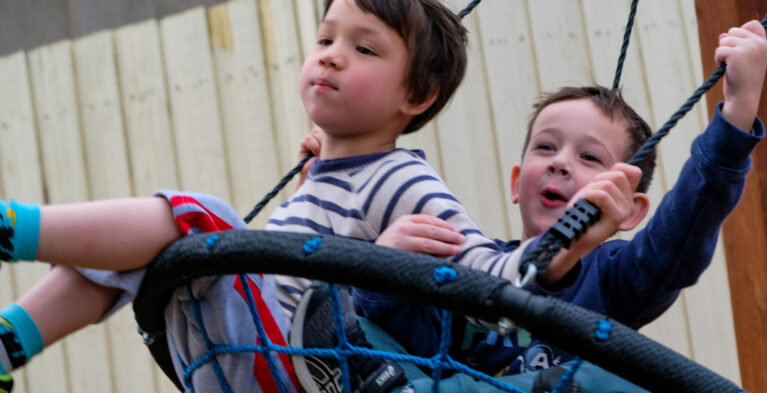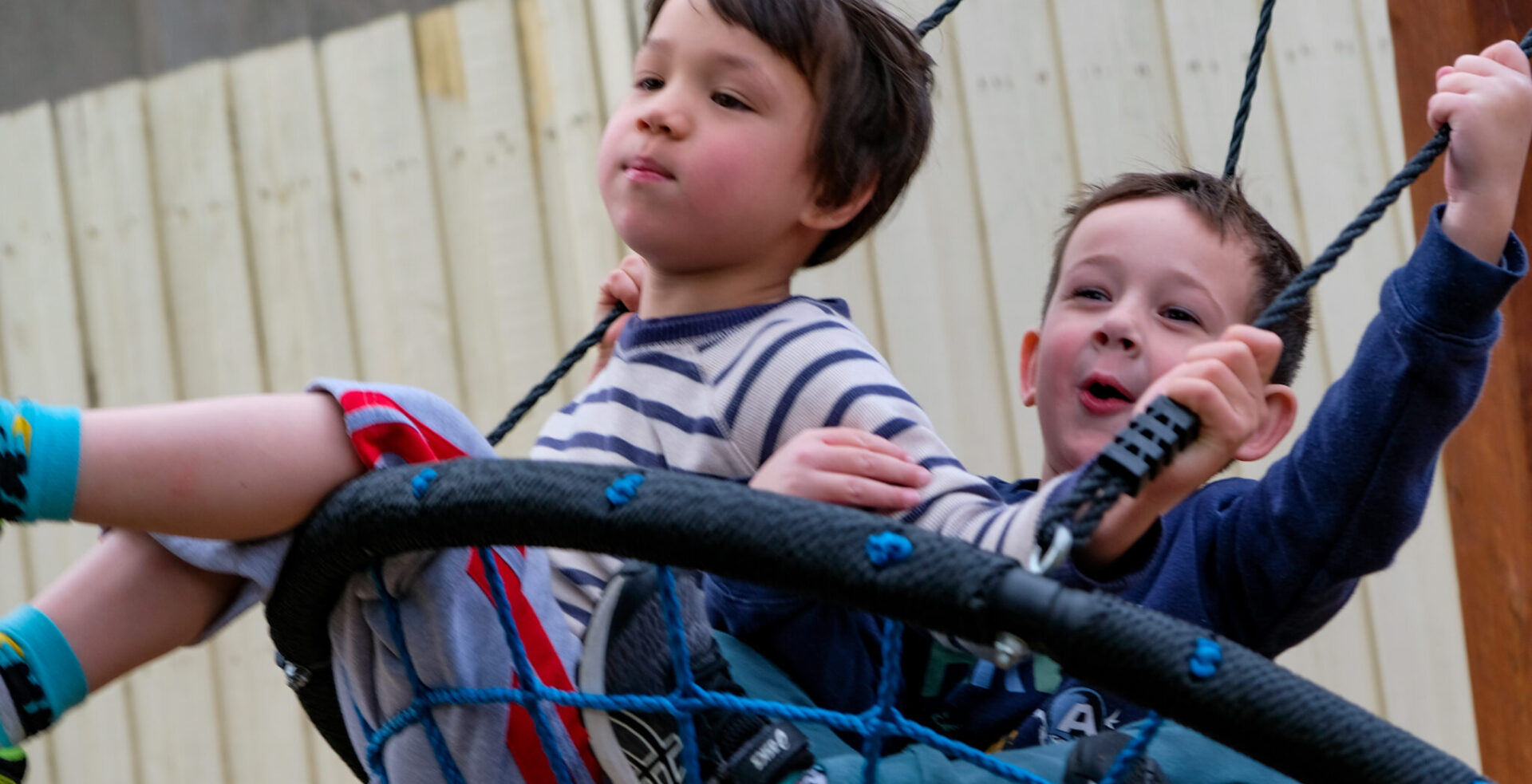Encouraging play with peers in the early years

We all want to see our children happy and interacting with their peers, watching them laughing and having fun with other children in the playground. However, social connection and play do not always come naturally, and at times autistic children might need some extra support and guidance to build these connections.
Playdates at home
Playdates with familiar peers are a great way to provide your little one with opportunities to interact socially and build social connections with their peers in the comfort of their own home. Some tips to help playdates run smoothly:
- Keep it short – when you are first starting to explore playdates, keeping them to an hour or less will help ensure that you can end the playdate on a good note. We want to make sure our little ones are going to be happy and excited for the next time their playmate comes over for a visit.
- Keep it fun – set up activities that you already know your child enjoys and is familiar with. That way, they can just enjoy the experience alongside their friend.
- Consider your child’s needs – think about the location/environment of the playdate, ensuring that it won’t be too overwhelming and that your child feels comfortable.
- Structuring the playdate – planning out a rough schedule can help maintain the success of the playdate. Think about the amount of time your child is typically able to be successful playing with or alongside their peers, and plan for each activity to go for just a little bit shorter than that amount of time. Having time for a snack together or setting up a picnic in the middle of the playdate is often an excellent way to break up the time.
- Types of activities – for some kids, needing to share their favourite toys can be challenging. Opt for activities or games your child typically enjoys with other people or activities that NEED more than one person to be involved. Some ideas for games and activities include hide and seek, bubbles, chasey, kick to kick, finger painting, playdoh, baking, colouring/ drawing, waterplay or dancing.
- Build interaction slowly – it’s ok if the first few playdates are just the kids playing alongside each other without much interaction. Your child’s interaction skills will develop gradually over time.
- Repeat! – doing the same activities a few times is a great way to build your child’s skills. During each playdate, you can try a few new activities and repeat a couple of previous activities the children have enjoyed.
Play in the community
Making friends and playing with other children at the park or other locations within the community can often be harder to facilitate than play within the home environment. However, we can do a few things to help children form connections in these situations as well.
- Places like play centres and local parks can be great places to start building friendships in the community.
- Consider your child’s sensory needs when looking for the ideal location to connect with peers. Select a location that is the least likely to overwhelm them. Again, consider the duration in your chosen play location.
- Encourage your child to select somewhere to play where there are already other children nearby. For some children, this could involve setting a first / then, for example, “first let’s have a turn on the slide with the other children, and then I will push you on the swing”.
- Be involved in the play so you can facilitate conversations and interactions with peers within the environment, for example, introducing your child to other children and starting some fun and simple turn-taking games, such as taking turns to go down the slide.
- Encourage simple verbal interactions such as saying “ready set go” when it is the other person’s turn.
How we encourage peer play and social connections in our programs
Helping children develop social connections and relationships is a huge part of our programs, and is something we start working on from day one. Initially, we may focus on their relationships with familiar adults and caregivers. Over time, we turn that focus to supporting the kids to develop friendships with their peers and other key people in their life – giving them ample opportunities to practice, build their confidence and navigate the social landscape.
About the Authors
Written by Amber Newton and Rebecca Montebello. Amber is a Group Learning Consultant and Behaviour Consultant Mentor with Autism Partnership and holds a Bachelor’s Degree in Public Health & Health Promotion and a Masters’ of Education in Applied Behaviour Analysis. She is a Board Certified Behaviour Analyst, with 14 years experience in the field of Early Intensive Behaviour Intervention. Rebecca is the Little School Teacher and Group Teaching Specialist with Autism Partnership. She holds a Bachelor’s Degree in Early Childhood Education and Primary Teaching, with 8 years of experience in the field of Early Intensive Behaviour Intervention.
Subscribe to our newsletter
For information about our FREE parent talks, handy resources and all our latest news.




